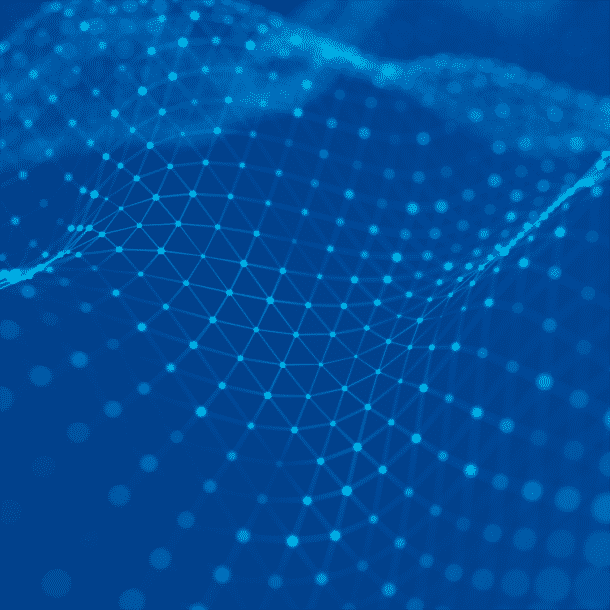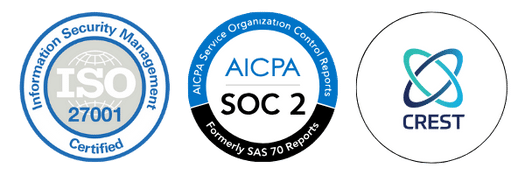
HIPAA: A US Federal law to protect health information
The Health Insurance Portability and Accountability Act (HIPAA) was originally passed in 1996 by the US Congress. It is the federal law that required the creation of national standards to protect the sensitive health information of any patient from disclosure without the patient’s consent or knowledge. HIPAA tried to streamline the data protection measures across the health-care industry. The US Department of Health and Human Services (HHS) issued Privacy Rules for implementing the requirements of HIPAA. The subset of the information covered by the Privacy Rule is protected by the Security Rule of HIPAA.
Need of HIPAA
The complexity of the law seems clumsy to some practices, while others find the law explicitly frightening. It is designed in a way to protect the privacy of the patient and the integrity of the medical practice. It comes with a number of benefits for the healthcare industry to help with the transition from paper records to electronic copies of health information. Let’s discuss what makes HIPAA compliance is essential to successful practice for healthcare industries.
1. After the enforcement of the law it was found that HIPAA helps to promote the personal and social values of the patients. It supports the other fundamental values including the ability to make personal health-related decisions, Individuality, respect, and dignity. Privacy is a vital component of a free society that provides societal values as well as personal values.
2. HIPAA compliance provides more transparent healthcare as the patients have knowledge about their health information that it is being handled carefully by their healthcare provider. This tends to share more relevant information about their specific health concerns. It is important for healthcare providers that their patients share health-related information in detail so they can get better treatment.
3. Your next concern that captures your attention is the penalties for non-compliance with HIPAA Regulations that have indeed been costly, with penalty limits recently rising from $25,000 to $1.5 million annually per violation. Furthermore, penalties can include calling a significant proportion of your patient base, which involves extra hours from your workers. The loss of patient health records could be more expensive than your practice can handle, as infrastructure tends to be vulnerable to hackers and criminals.
4. The newly added Breach Notification rules expose more breaches. The federal government is cracking down on HIPAA violations, with new laws that make it easier to cause criminal prosecutions or rigid sanctions over a single security violation. In addition, in order to prosecute further alleged violations, the Department of Health and Human Services Office of Civil Rights is expanding its compliance staff. Even the attorney generals are actively involved with the enforcement of HIPAA compliance.
5. The bottom line is that complying with HIPAA is not an option today for medical practices or their business associates. The laws and HIPAA compliance have been stricter, if any activities that do not adhere may face severe penalties. As media sources are starting to make this data available, activities of violations are now becoming more well known. The covered entities are now at the point where they cannot afford to be non-compliant to any portion of HIPAA.
Covered Entities
The following types of organizations and individuals are subject to the Privacy Rule of HIPAA law and considered covered entities:
• Healthcare Providers: HIPAA covers each and every healthcare provider, regardless of the size of the practice, who transmits health-related data in connection with certain transactions electronically. These transactions include benefit eligibility inquiries, claims, referral authorization requests, and other transactions for which the US Department of Health and Human Services (HSS) has established under the Transaction Rule of HIPAA.
• Health Plans: Entities that offer medical services or cover the cost of it. Health plans include insurers for health, medical, vision, and prescription drugs. Healthcare Organisations (HMOs); substitutes insurer for Medicare, Medicare choice, Medicaid. Health plans also include community funded by employers, health plans sponsored by the government or the church, and multi-employer health plans.
Exception: a group health plan of fewer than 50 members is not a protected agency (covered entity) and is exclusively managed by the employer who developed and manages the plan.
• Healthcare Clearinghouses: Entities that transform non-standard information they obtain into a standard from another organization, or vice-versa. In most cases, healthcare clearinghouses can obtain personally identifiable patient records (health information) only when they are providing these processing services to a healthcare provider or health plan as a business associate.
• Business Associates: A person or agency (other than a staff member of a covered entity) who uses or discloses individually identifiable health records to conduct or supply a covered entity with roles, programs, or facilities. These tasks processes or resources include processing of claims, evaluating data, utilization review, and billing.
Why is HIPAA Important for Patients?
Arguably, the main advantages of HIPAA are for the patients. It is critical because it ensures that multiple safeguards must be enforced by the health care providers, healthcare clearinghouse, health plans, and business associates of all HIPAA-covered entities to protect the sensitive personal and health information.
Although no healthcare industry wants to expose wishes to expose the sensitive data or patient information stolen, without HIPAA there would be no obligation for healthcare industries to secure the data and no consequences if they failed to do so. HIPAA has established rules that enable healthcare industries to monitor that who has access to the health records, regulate who can see the health information, and with whom it is possible to share that information. HIPAA compliance helps to ensure that every information must be protected by strict security controls that are disclosed to the healthcare provider or the information that is created, stored, or transmitted by them. Patients are also having control over who is their information shared with.
HIPAA complaince is important for patients who play an active role in their healthcare and want to obtain information related to their health. Even with great care, healthcare entities may create errors when recording health information. So in this case, if the patients have access to copies of their health information, they can check for errors and ensure that the mistakes are corrected. Obtaining copies of the health information can also be helpful in case if any patient seeks treatment from any other healthcare providers such as the health information can be passed on, there will be a need to repeat the test, and the history of the patient’s health becomes helpful to inform their decisions. Before HIPAA, there were no requirements for healthcare entities to release a copy of a patient’s health information. Following are some more benefits that a patient gets from HIPAA:
- The authorized person has a right to speak on your behalf, in case if you are not able to do it due to any critical health condition.
- HIPAA protects the information related to you that is stored with your insurer
- It also protects any billing details about your treatment at any pharmacy.
- HIPAA protects any other health-related information that is in the safe-keeping of any people who are expected to comply with the HIPAA law.
Key Takeaways
The Portability and Transparency Act for Health Insurance (HIPAA) ensures that private health care policies are available, portable, and renewable, and sets standards and methods for the exchange of patient data in the U.S. health system to deter fraud. It pre-empts state law (unless the laws of the state are stricter).
Since 1996, HIPAA has been modified to provide processes for electronically storing and transmitting patient medical records. It also contains provisions for administrative simplification, aimed at improving productivity and reducing administrative costs through the development of national standards.
In 2009, HIPAA privacy and security rights were broadened by the Health Information Technology for Economic and Clinical Health Act (HITECH). As part of the American Recovery and Reinvestment Act of 2009, the HITECH Act was enacted as a means to encourage the use of health information technology. Privacy and confidentiality issues are covered by a section of the HITECH Act.
The most recent updates came up with the introduction of the Omnibus Final Rule, which amended the Security Rule, Privacy Rule, Breach Notification Rule, and incorporated with the requirements of the HITECH Act into HIPAA. The new rule also introduced new regulations for the business associates of covered entities, allowing fines to be imposed directly in case of failure to comply with HIPAA Rules.








